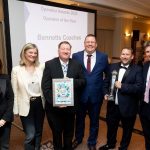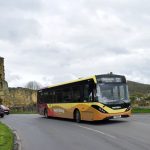DTC refuses application after finding that Mr Marshall did not meet the requirements for the restricted licence
A bid for a restricted licence to run a party bus by Whitley Bay-based Barry Marshall failed after Deputy Traffic Commissioner (DTC) Gillian Ekins considered he did not meet the main occupation rule, because of a lack of a business plan or evidence of his calculations.
Mr Marshall, of Egremont Place, Whitley Bay, had sought a one-vehicle restricted licence with an operating centre in North Shields. He had asked for a hearing after a proposal to refuse on the grounds of failure to meet the main occupation rule.
At the outset the DTC said that the requirement was very clear. To be entitled to seek a restricted licence the applicant had to have an occupation other than the operation of PSVs. It was an ongoing requirement throughout the operation of the licence.
For Mr Marshall, David Glover said that the purpose was to operate a 16-seater party bus. It would not be used for school or local authority contracts and the vehicle was not really designed for that. It would be used to undertake private hire taking people to and from venues in the area. Mr Marshall’s main occupation was the detailing and valeting of cars.
Mr Marshall said that he wanted another string to his bow. He did not want a national licence as he would need a transport manager and as the business was not yet up and running he could not afford to pay for one.
He would advertise the service through social media, friends and family, and at various venues in Newcastle upon Tyne. He would operate on Friday evenings and Saturdays. He would like to think that his income from the detailing and valeting would increase compared with the previous year. He agreed that he would only be working three and a half days a week on the detailing and valeting business instead of five.
In reply to the DTC, Mr Marshall said that he did not have a business plan for the party bus as he had not realised he needed one. He would charge £150 per party bus job and he predicted he would earn £5,000 to £6,000 per year from the party bus which he would drive himself. He had purchased the vehicle in February 2016, and it had been off the road since. It was taxed but not MoT tested. Financial evidence was heard in private.
Refusing the application, the DTC said that without cogent evidence about the figures put forward in relation to the PSV business she had concluded that it was more than likely to exceed the income from Mr Marshall’s current business. He did not have a business plan or had produced any calculations in relation to the amount to be earned from the PSV work.























